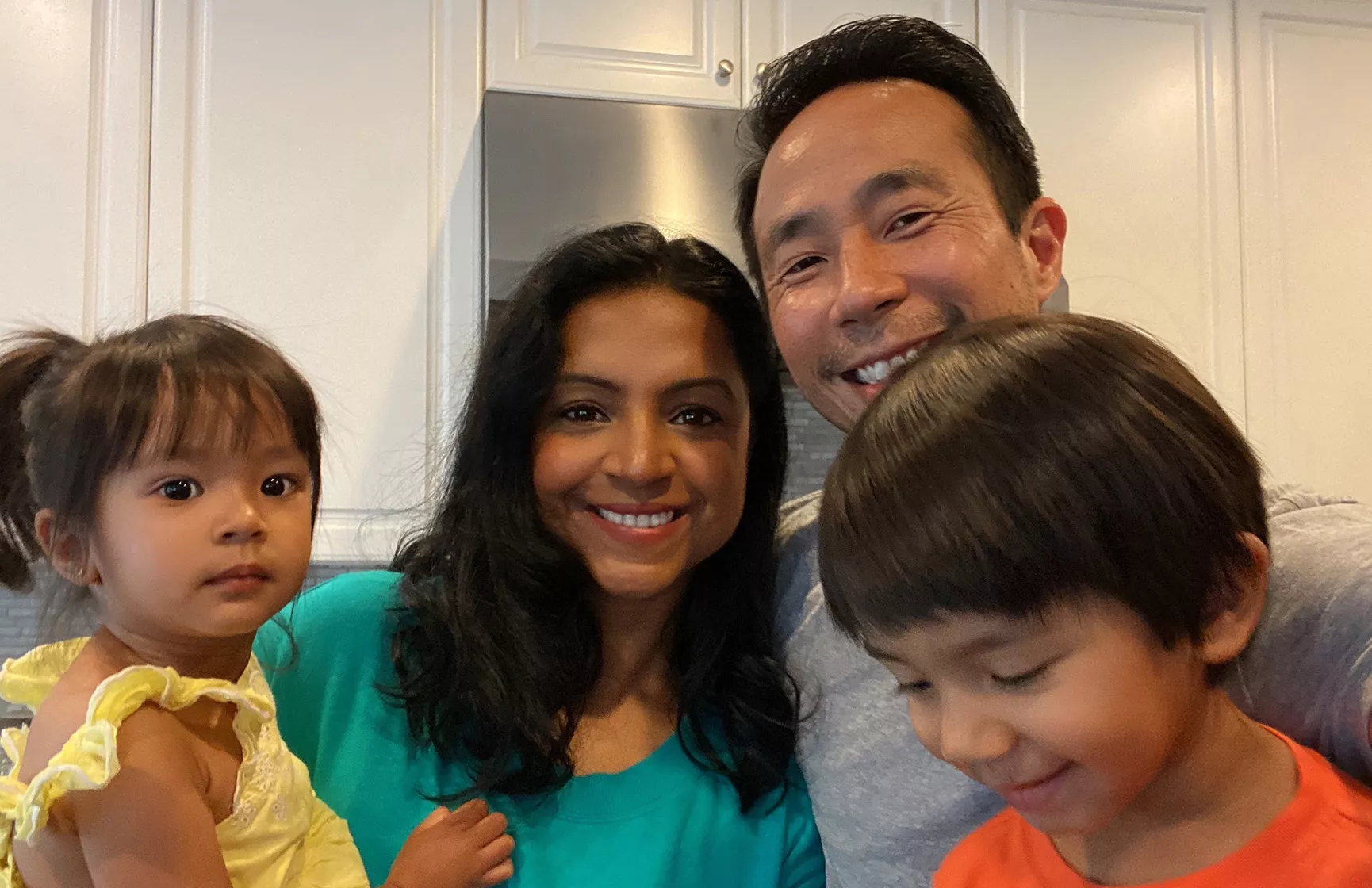Q&A with Pritha Sridharan: General Manager, Orange County

Pritha Sridharan talks about leading by example, the power of not fitting in, and the incredible startup energy in Orange County.
You went to college at just 16 years old. Tell us about that.
Yes, I went to UC Irvine, which is in Orange County and a great place to be a computer science major!
When I was young, my father worked for the United Nations. I was born in a small village in India, and then we moved to Nigeria, then to Laos, then to the UK. And when we got to the US, we moved to a bunch of different states.
Because we moved around a lot, I skipped grades. I was always two years younger than my classmates. Even though I was able to keep up academically, I was never able to keep up socially. I was 10 years old in seventh grade. The girls in seventh grade are 13 years old. That’s a big difference. I had to try and keep up, but I also stopped caring about fitting in as much.
How have those experiences shaped your career and your leadership style?
They forced me to adapt to being uncomfortable and taught me that discomfort doesn’t mean anything. It doesn’t mean you’re going to fail. It just means something’s new. That’s all.
There’s a freedom in not belonging because you realize it’s overrated. When you never quite belong anywhere, you realize you belong everywhere. That’s not to minimize kids who go through experiences where they’re bullied. I’ve certainly been bullied, being younger, and being an immigrant here and an immigrant in other countries.
Nobody has the right to tell you whether you belong or not. That’s actually pretty ridiculous. So stop asking them. Stop asking for permission. Stop waiting to be invited. Create your own space.
Nobody can tell you what your potential is; it’s on you to discover that for yourself. Other people don’t know their own potential either. So, since nobody really knows anything, you may as well just go for it. Don’t limit yourself.
Is there an example of a time you’ve successfully moved through discomfort?
Embracing new levels of responsibility, especially senior executive–level responsibility, was initially uncomfortable. My approach to my career has always been focused on feeling a sense of purpose and fulfillment, to be open to what feels right intuitively, and to spend my time doing what I enjoy. When I joined Slalom and began working with Don Piluso, I learned not to put labels on things. Moving into leadership is not what you think it’s going to be, because everyone’s style is so different. It’s what you make of it; it’s what you bring to it.
What makes the business community in Orange County unique?
Companies are going to go where they can find talent. In Orange County, we’re surrounded by many different universities. Those academic institutions produce really intelligent, driven people who are going to be making an impact across the world.
And there’s amazing venture capital funding coming into Orange County. It doesn’t get the attention that Silicon Valley gets, and I think that’s on purpose. It’s more about the work and creativity here than the glitz. We attract companies that want the innovation of Northern California without all the attention.
We haven’t started working with them yet, but I found one potential client, a startup, with a high valuation. I was driving when I saw their office and I said, “We have to do work there!”
As a leader, how do you know when to pursue new opportunities like that?
It’s a combination of genuine curiosity for the unexplored, coupled with a sense of confidence that we can be valuable to that particular client. So much of the work we do is exploration, showing our clients what’s possible and walking beside them through their journey. Whether it’s a client that you’ve done work with before or a new company, it’s all really the same mindset.
How do you inspire that same sense of curiosity in your teams?
I really believe in leading by example. Leaders have to be in the trenches, carving the path forward. It’s not about being perfect; it’s about creating experiences that can be improved upon. The people who walk behind you, who follow you, are the ones who make the path bigger and better and greater.
You have to know your people are going to be better than you, that your successors are going to be better than you. And you have to want that.
I’m always blown away by how talented and creative our people are across Slalom. Particularly in Orange County, it’s a highly collaborative team. I’m impressed by how humble our people are, given how talented they are, and how much they’re willing to help other people.
You post on social media about inclusion, diversity, and equity. Why is it important for leaders to address these topics publicly?
I believe leaders have such a great responsibility over the well-being of other people, and it’s a serious responsibility.
If you want your people to be authentic, you have to protect the space that allows them to be vulnerable. I feel we did that at Slalom by declaring that we’re an anti-racist company. I feel if we hadn’t taken that stand, we would have jeopardized our culture. I think that we would have been making it unsafe for people to be vulnerable, therefore to be authentic—and that goes against Slalom’s values.
Our clients and so many other companies are asking, “How do I create a company that will attract future generations?” and I can’t emphasize enough that what people are looking for in terms of their leaders has changed dramatically. We live in a very polarized time, and we can’t pretend that we’re not there.
Leaders have to lead with courage. I believe if we don’t speak up and stand up against things that make people feel unsafe, we’re not protecting them; therefore we’re not really leading. For me, speaking up is a worthwhile risk and I will never apologize for standing up for the things I believe in. Because if I can’t stay true to myself, I can’t do a great job.
What does life outside work look like?
I live a very simple life. I work out and I hang out with my family. Family time is taking my two kids to the park, getting frozen yogurt, cooking, running errands with my husband. Just doing very simple things. I love the fact that I can spend time with my children that way because of Slalom’s flexibility.
What podcasts are inspiring you right now?
Malcolm Gladwell! I love his podcast, Revisionist History. Malcolm takes something that you think is a certain way, and then he breaks it down. And you realize it’s nothing like what you thought it was.
And I go up and down with meditation, so I love Dan Harris’s Ten Percent Happier podcast. He’s an ABC anchor who had an anxiety attack on camera. He turned to meditation, and now he interviews a lot of different people about self-awareness and meditation.
Let’s wrap up this Q&A with a quick-fire round. Cats or dogs?
Dogs. We have a black Labrador.
Sweatpants or suit?
Sweatpants. I’m wearing them right now.
If you could live anywhere else in the world, where would you be?
Florence, Italy.
Favorite TV show?
The Wire.
Favorite movie?
Forrest Gump. The whole beauty of that movie is that he gets put in all these situations, and then they work out or they don’t, and he just moves on. He just moves forward. Even though he’s so innocent and unassuming, he’s so resilient. He doesn’t fight the changes in his life. There’s something very poetic about that story.

